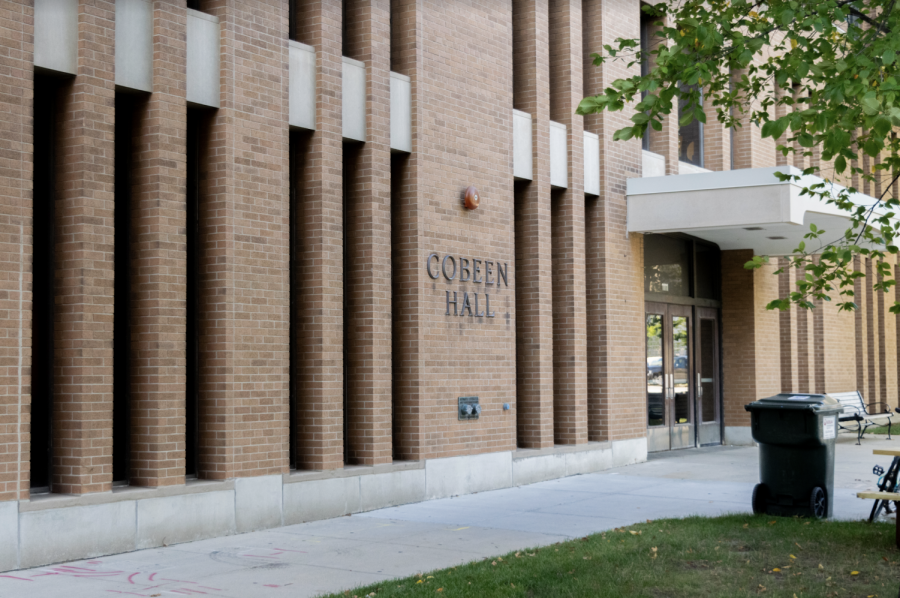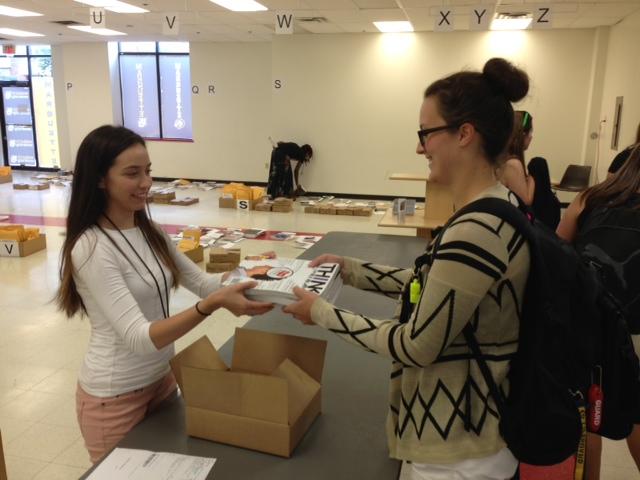A new school year means new classes and the need for new textbooks. But new ways of acquiring books are drawing more students away from traditional college bookstores.
In 2009, college bookstores are facing opposition from Web sites where students can rent and buy books, including Chegg.com, BookRenter.com, and Half.com.
In separate studies, the number of students using Web sites and renting books has increased.
Textbooks.com, with sells used textbooks for up to 90 percent off the retail price, released an annual survey on August 27 that 60 percent of students purchased their textbooks from at least one online store.
Another study conducted by the National Association of College Stores, a national trade association of about 3,100 stores for colleges, said the number students purchasing their textbooks online has gone up 11 percent in five years. According to the study, 25 percent of college students’ textbooks were purchased online last year compared to 14 percent in 2003.
The study also reported that 70 percent of national textbook sales come from university stores, averaging about $750 spent per student.
Guaranteed returns, class bundles, and funds given to the community are selling points for college stores, said NACS public relations director Charles Schmidt.
“If price is your only determining factor, online sites do have their place,” Schmidt said. “We feel that the college store is the best value to have the exact course material that is required.”
Schmidt also mentioned a new Web site, textbookaid.org, the company has launched in partnership with the IRS as a part of the American Recovery and Reinvestment Act.
The site gives students the opportunity to claim a tax credit of up to $2,500 on that year’s tax return for books purchased during the 2009-’10 school year.
Marquette’s official book store, BookMarq, could not comment directly on their expected pace of sales for fall 2009. The Follett Higher Education Group, speaking on BookMarq’s behalf, said the company is working to provide alternative options for students, like electronic book access.
“Our mission continues to be delivering the right books at the right time for all students at Marquette, that has not changed,” Follett said via e-mail. “This inherently increases competition, but competition is good for consumers, and keeps us, at the BookMarq, very sharp in the services we provide.”
Sweeney’s College Books, also operating on Marquette’s campus, was unavailable for comment.
On Marquette’s campus, a general divide surfaced between first-time book buyers and upperclassmen that have been through the ropes.
Some freshmen and their families emerged from BookMarq having spent over $1,000 for the fall semester’s books. One College of Engineering student spent $1,500, while another student in the College of Communication spent $780.
“It didn’t look too busy, for having all the freshmen here,” said Maggie Hansen, a College of Business Administration junior. “I don’t know if it’s more students that went online. That’s what I switched to.”
Renting or buying online can save students hundreds. According to Chegg’s Web site, students can save 65 to 85 percent on rentals. The site claims to have saved students more than $43 million and plants a tree for each rental.
BookRenter claims it can save students up to 75 percent. A statement released August 10 said the site’s growth is up 750 percent from 2008.
Mark Amantea, a junior in the College of Business Administration, said he saved $400 on books using BookRenter.com.
Another new option for students is BookMarqet.com, an exchange site for Marquette students to set prices and dictate the market for books. It is not affiliated with the university.
Some upperclassmen leaned towards buying or renting online.
“I got all my books on half.com,” said Mike Movido, a College of Communication senior. “I saved 20 percent based on what I would have spent at BookMarq.”
Another student, Valerie Gamsky, a College of Communication junior, said she saved about $450 by going online. She said it would have cost her much more otherwise.





